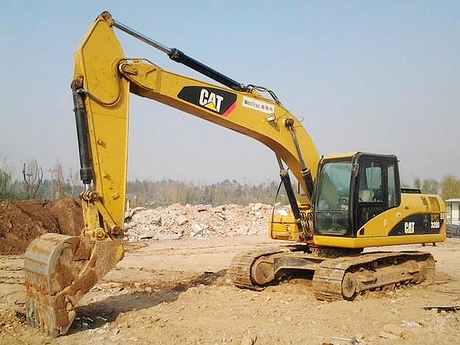|
In the field of construction machinery, the excavator is an important construction equipment. Its daily operating costs of concern, fuel costs in addition to maintenance expenses account for a large proportion and are the focus of attention of operators and enterprises. How to reduce fuel consumption and improve efficiency is the industry urgently needs to solve the problem. Recently, a series of practically proven excavator operation fuel-saving techniques were refined to provide strong support for cost reduction and efficiency.
According to professionals, excavators should try to be in a higher position when loading operations, while making sure the truck is parked in a position similar to the height of the operating surface. This principle of operation is similar to the daily delivery of goods, in a higher position and the height of the same pass more labor-saving, excavators in the operation of the same follow this law, reduce unnecessary energy loss, and thus reduce fuel consumption. In the process of the digging operation, the control of the cylinder angle is crucial. When the bucket cylinders and connecting rods, and the bucket cylinders and the bucket rods are all at 90°, the force of each cylinder pushing the excavator is at its maximum. Just like digging by hand, the positive digging method is the most energy-saving, and when the excavator operates at this angle, it can fully utilize its power performance and achieve high efficiency and low consumption. Digging in natural ground also has its own unique techniques. Keep the bucket or loader floor angle at about 30° and retract the bucket stick. Bucket force is greatest when the bar is nearly vertical, allowing more load to be carried. This principle is similar to human mechanics, where bending your arms to lift something is less strenuous than straightening them, and an excavator operating at the right angle effectively reduces energy consumption. In the initial stage of digging, the extension length of the bucket bar needs to be reasonably controlled. It is not suitable to extend the bucket bar to the maximum range of action, from about 80% to start digging the best results. Because the bucket stick in the maximum range of action, the minimum digging force, digging operations are difficult to carry out smoothly, especially for novice operators, need to pay more attention to this point, to avoid improper operation resulting in increased fuel consumption. Rotary operation, rotary angle control in 30 ° - 45 ° is appropriate. When loading the excavator, the slewing angle must not exceed 60 degrees. The smaller the angle, the faster the slewing speed, which not only improves operational efficiency, but also significantly reduces fuel consumption. Continuous digging operation, the placement of the chassis also has to pay attention to the position. The undercarriage should be placed in the forward direction, so that it can walk immediately after the end of digging. Reorienting the undercarriage while walking will result in additional fuel consumption for the start and finish processes. Trenching also has its own unique fuel-saving method. Dig the sides of the trench first, then the center. This approach reduces resistance when digging in the center, making it less difficult to work and thus saving fuel. In addition, the choice of engine throttle gear should not be ignored. Put the engine throttle in the economic gear position and select the automatic idling function, let the engine idle when digging, can effectively reduce unnecessary fuel consumption. Digging depth also has a greater impact on fuel consumption. The smaller the digging depth, the better the economy when digging. Therefore, try to use a segmented digging method, for example, divided into the upper, middle and lower three layers for digging. If a hand from the bottom to the top of the digging, not only the scope of action increased, the excavator's power will also be reduced due to the increase in the scope, resulting in a decline in efficiency and increased fuel consumption.
These fuel-saving operation skills, perhaps even experienced veteran operators in the daily operation may not be able to pay full attention to. However, as long as the operators can develop good operating habits, long-term adherence to the use of these skills, day after day, will be for the engineering enterprise to save considerable oil expenses, to achieve the goal of reducing costs and increasing efficiency, and promote the sustainable development of the construction machinery industry.
|





























